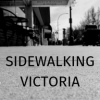Renowned Rail Transit Expert to Speak June 5 and June 6
#1

Posted 30 May 2007 - 08:33 PM
Charles Hale is an award-willing land-use transportation expert, advising many cities on pedestrian, transit and rail-orientated community design.
Hales was Portland's commissioner of planning and transportation when it became a model for integrating land-use/transportation, pedestrian and transit-oriented developmentand innovative financing. He set out as a consultant in 2002 and advises many cities on city and neighbourhood plans, streetcar systems, and financing strategies. He is sought out as a speaker at many conferences on SmartGrowth, transit and the urban environment. His work and leadership have been recognized by prestigious awards.
http://innovativecommunities.org/host/ITO/files/CharlesHalesflyer.pdf
http://innovativecommunities.org/host/ITO/pages/02.php
"Rail Transportation for the Region" - June 05/06
Speaker: Charles Hales (Transit Planning Principal HRD Inc., Portland)
Date: 19:00, Tuesday, June 5th
Location: Room 123 of the Engineering and Computer Science Building (ECS) at Uvic
Date: 19:00, Wednesday, June 6th
Location: Isabelle Reader Theatre at Spencer Middle School (1026 Goldstream Ave.)
Further info: Dan Pollock - mailto:pollock@theorem.ca or (250) 884-0183 or visit
http://uvic.commonen... ... and_Trails
#2

Posted 21 June 2007 - 04:02 PM
[url=http://www.vicnews.com/portals-code/list.cgi?paper=36&cat=23&id=1009311&more=0:773c4]A streetcar named success[/url:773c4]
By Brennan Clarke
News staff
Jun 20 2007
Portland’s urban transportation guru spreads his wisdom in Victoria
It takes plenty of pieces to assemble a good development – zoning, density, design form and character and landscaping come to mind.
For urban revitalization guru Charles Hales, nothing good can happen without proper transportation planning.
“Density is great as long as people don’t try to drive everywhere,” Hales said, gazing out the window of a hotel hospitality suite amid a beehive of construction activity along Humboldt Street. “You need to connect those urban residents with a lot of services, but without a heavy hand from central planning. If you give people a transit-generous environment you can achieve that.”
Hales would know. Serving as a Portland city commissioner from 1992 to 2002, Hales championed the expansion of the city’s run-down streetcar network and advocated for light-rail projects that are now seen as instrumental in the rebirth of downtown Portland.
Flipping open his laptop, Hales calls up a photo of Portland in 1967 showing an ugly sea of off-ramps, clover leafs and surface parking, with little in the way of residential development.
Fast-forward 40 years and Portland is now held up as an example of successful urban revitalization and studied intently by politicians and planners hoping to achieve similar results.
Hales, now head of a private consulting firm called HDR Inc., was in town earlier this month for a whirlwind day of presentations to politicians, developers and business leaders, including the Capital Regional District board of directors.
Since leaving his job with the City of Portland – an elected post – Hales has helped cities such as Miami, Phoenix, Tucson, Winston-Salem, N.C. and Madison, Wis. to develop transit models aimed at reversing the process of urban decay.
It’s a simple approach, based on making transit and zoning improvements that set the table for development, which drives the price of property upwards. Property owners are then required to pay extra tax as their land values rise.
“Basically you boot-strap the debt. You zone where you want new development and then you tax based on bonus density,” Hales said.
“(Portland) put street cars in an area where the maximum was 15 units an acre. We expanded that over time and now the minimum is 125 units per acre.”
In the U.S. especially, that kind of deficit spending is often equated with Liberal idealism and left-wing politics. The reality, Hales said, is that Portland’s experiment has satisfied both economic and social problems.
“We spent less than $100 million on streetcars and generated $3 billion in redevelopment,” he said. “That’s a pretty Republican proposition.”
At first Hales faced criticism, even from the region’s transit authority, which called his streetcars the “donkey trolley” and refused all support.
“Now it’s on their website,” he said. “The LRT system is now the spine for the whole region.”
Hales’ streetcars, which run free of charge due to a long-standing municipal policy, were expected to attract 2,800 people a day. In the first year, ridership averaged 4,300 a day and is now a robust 10,000. About half of the people who work in downtown Portland now arrive by transit, an achievement that saves the region 31 million vehicle miles a year, he added.
Hales is also known for raising $58 million in bonds to fund the improvement of 114 Portland parks.
And his advice for Victoria? Stop pretending to be a small town and engage in comprehensive planning with a heavy emphasis on public transit.
“I’m not buying this ‘aw shucks we’re just a small town’ argument. Victoria has a chance to be a world-class city,” he said. “But assuming that Victoria is not a big city and doesn’t need to plan like a big city is a little misleading.”
mailto:bclarke@vicnews.com
#3

Posted 21 June 2007 - 04:41 PM
“We spent less than $100 million on streetcars...
That's amazing. Did you guys know about Tacoma's new (circa 2003) streetcar line? It would seem to be a good test case re: the viability of an urban LRT line along Douglas Street. A basic urban line in Victoria running from Town & Country to the conference centre would be exactly 2.5 miles long, as compared to 1.6 miles for the line in Tacoma.
http://www.lightrailnow.org/news/n_tac003.htm
#4

Posted 22 June 2007 - 09:11 PM
#5

Posted 22 June 2007 - 09:46 PM
Some snippets:
After that come some interesting conclusions, too.The case for transit is not an easy one to make for the voters. Costs are very high, and only a few of the voters live near enough to the lines to get much direct benefit. The trickle-down case is difficult to make, especially since expensive transit systems usually force cutbacks in bus service to pay for the rails. So it's not surprising that the case is invariably oversold. One of the worst ways it is oversold is to urge people to imagine that these first baby steps, or "starter lines," will someday grow into a full system, as in larger, older cities.
(...)
A second dubious claim is that rail is a step forward over buses. In fact, [url=http://www.historylink.org/essays/output.cfm?file_id=2667:f88b0]the history of American cities, including Seattle[/url:f88b0], is that streetcar lines were converted into much less expensive, more flexible, and more extensive bus lines. As bus systems decay, due to cuts in public subsidies and other ailments of large government bureaucracies, they come to seem dated and worn out, whereupon the pendulum of wishful thinking swings back to rail.
That said, there is a real case to be made for rail transit. The real benefits of rail are not to be found by doing passenger counts and narrow economic calculations of cost per mile. Let me list three, all of which are harder to quantify and two of which are politically awkward to tout.
One benefit is that rail, being thought socially superior to buses, attracts riders from affluent areas who would not ride buses but will shift (in small numbers) from cars to rail. It's an awkwardly elitist argument.
(...)
The second benefit, a little less awkward to proclaim, is that rail lines trigger economic investment and real estate plays. A story in the June 20 Wall Street Journal, "A Streecar Named Aspire: Lines Aim to Revive Cities" [$], notes how streetcars, like the one in Portland that stimulated a boom in the Pearl District (a claimed $2.7 billion in new investment) and the new one abuilding in Seattle's South Lake Union neighborhood, are catnip to developers. The cuter the streetcars, the better for iconic purposes (even if they are so slow and of such small capacity that the federal government is loath to fund them). They may be even better stimulants to development than stadiums, convention centers, and aquariums (granted, a pretty easy standard to beat). Once again, the politics of this claim is tricky, since enriching the portfolios of real estate developers through public subsidies is not the sure path to the City Council.
The third benefit is urban planning: Rail stations tend to concentrate growth and can create walkable, compact, fairly self-sufficient nodes of residential and office buildings. Theoretically, that is. In reality, the stations often go in existing urban nodes (like downtown Bellevue or the University District). Where they create stations in areas that are not dense, often the political price of that location is that you cannot upzone, build big parking lots for park-and-ride, or otherwise put a sleepy neighborhood on a crash course to high density. Sound Transit, as well as the dead Seattle Monorail Project, have both been very reluctant to talk about upzoning around their stations, for fear of touching off political rebellions. But still, over time, by being very fixed and therefore a predictable node for long-term real estate speculation, rail stations do create new concentrations to focus growth a little better.
So there are cost-benefit cases to be made for investing in rail, even if hard to quantify, tricky to state publicly, and very slow to pay off.
#6

Posted 24 June 2007 - 01:47 PM
“We spent less than $100 million on streetcars and generated $3 billion in redevelopment,”
BC Transit has a whopping $5.3 million to work with for their "Transit priority" project... they can't even afford to put in a BRT. Whose chains should the public be rattling?
Here's another question - if transit is interested in moving people and municipalities in attracting development then what financial role should municipalities play in value-adding? Where does that money come from?
#7

Posted 24 June 2007 - 03:06 PM
Where does the money come from? The gas tax! No I don mean increasing it, but preventing it from going to Ottawa. If the CRD could keep all of the money from the gas tax that is now leaving the region, that would be a good starting point. The public should rattling the provincial government's chains. And if that doesnt work, ask the private sector (which should be a last resort).
#8

Posted 03 July 2007 - 03:48 PM
0 user(s) are reading this topic
0 members, 0 guests, 0 anonymous users













